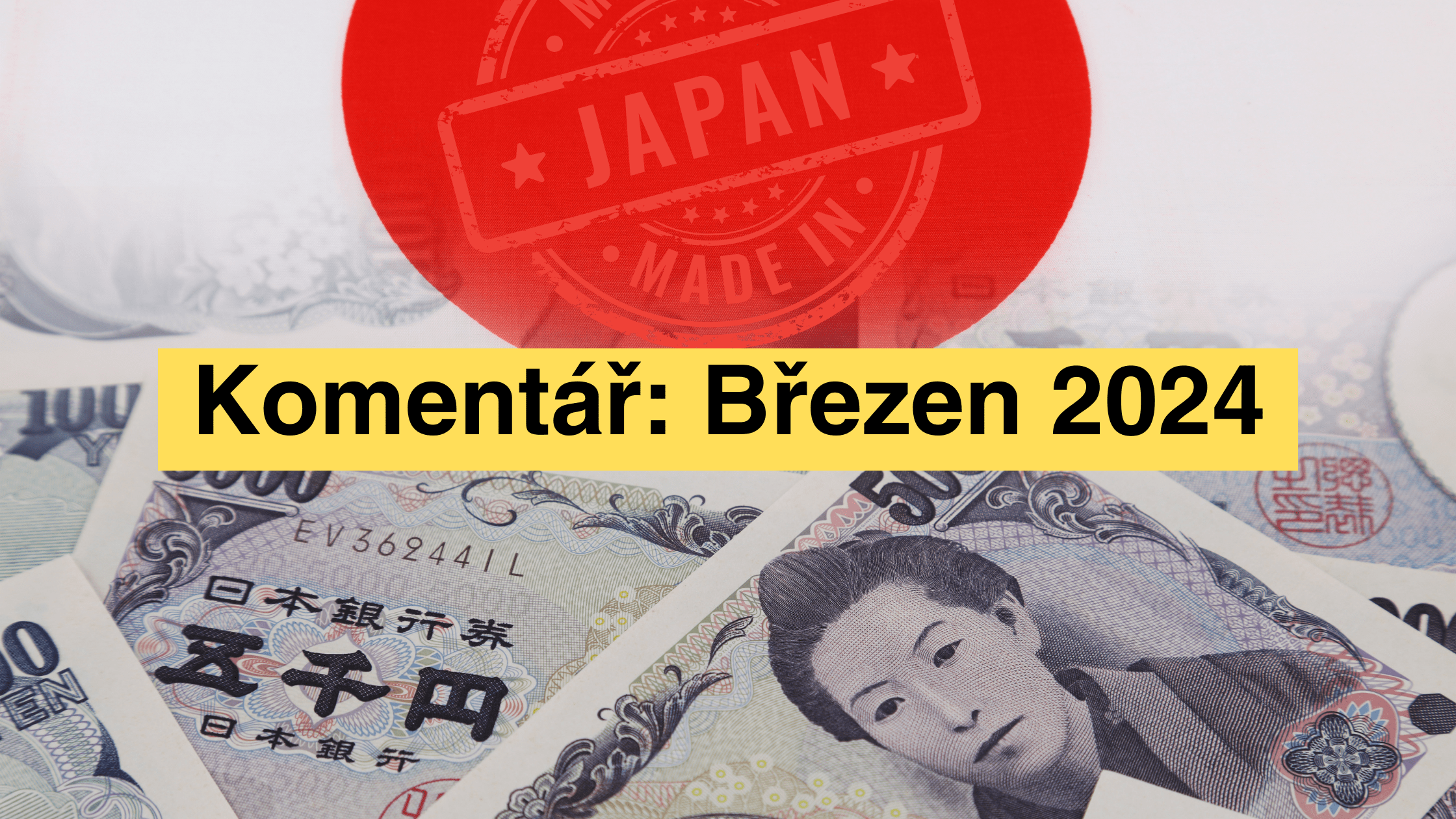



The beginning of April calls for a recap of the most important events of the past month, which was quite crucial - for example, stock markets experienced their best quarter since 2019, thanks to investor confidence in interest rate cuts and a miracle called AI. However, eyes are only going in this one direction, ignoring what lurks in the background. And that is the Bank of Japan.
Equity markets had their best quarter since 2019
During March, the major stock indices continued to push their All Time High boundaries even though trading volumes were below average. Stocks got a lot of help from Jerome Powell (Fed Chairman-in-Chief), who seemed to brush investors' fears of inflation rising again under the table during his speech.
The major U.S. indices didn't worry about strong economic data either, where "Bad news is good news" is more likely to apply in the current environment. The market is still pricing in at least three rate cuts this year, but that will be hard to do with good macro data - realistically the Fed has no reason to cut rates at the moment. Here again, as in previous years, it will probably be the case that interest rate cuts will only start when something really breaks. We are still riding the AI wave, as evidenced by Nvidia completely dragging the entire market, for example. Its stock gained 87.5% in Q1. It has become the 3rd most valuable company and is trailing closely behind Apple.
Overall, the major US indices for the first quarter gained S&P 500 +10% and Nasdaq +9.1%.
Europe is also on a trend of breaking new highs, especially the German DAX index, which gained +12% for Q1. For European stocks, we see two reasons for their growth: the first is the relatively interesting valuation for investors and the other is the not-so-favorable situation of the European economy. This gives the European Central Bank (ECB) a chance to cut interest rates before they start doing so in the United States.
From our perspective, the markets have become a fortress of overly optimistic males waiting for the Trojan Horse. We don't want this article to sound pessimistic, however, what we see as needed now is genuine caution and prudence. We adhere to Warren Buffett's rule: Be afraid when others are greedy. Fear we do not, but prudence we prefer.
The Bank of Japan raised interest rates for the first time in 17 years
The fact that the Bank of Japan raised interest rates for the first time in 17 years is probably the most overlooked fact we see in the investment world right now, and almost no one is talking about it.
In fact, it has been leaked in Japan for quite a long time that it has been struggling with inflation, a weakening economy and, in particular, the devaluation of the Yen. It is the devaluation of the Yen that is perhaps the most significant, as the central bank needs to defend its currency as much as possible. It is not only because of higher inflation that the BOJ (Bank of Japan) has decided to raise interest rates out of negative territory for the first time in 17 years. It is not clear if the market expects this, but the BOJ is sending clear signals that they will continue to raise interest rates and that they will intervene if the Yen weakens to a certain level. None of the BOJ officials wanted to comment on that either. So far it looks like intervention is taking place somewhere around 152 USD/JPY.
Why do I see this whole situation as a not insignificant and global problem?
The concept of Carry Trade is something that resonates a lot in the financial world in connection with Japan. And it's a problem precisely because for a long time (17 years to be precise) all financial institutions around the world borrowed at virtually zero, thereby creating more money, which was pumped into the system and went on to more profitable investments - not a little money also in shares of technology companies, for example. As interest rates rise, the interest on these loans, which until now have been practically free, will also rise. This means that many institutions will start to shift assets from more risky to less risky. Specifically in this case, it is an outflow of money from equities into, for example, bonds or other risk-off assets.
Why are we doing this? Our exposures in some products are just in equities and technology. We have been anticipating this scenario for over a year and are still preparing for when the market starts to react to this problem. We believe this will help us generate profits even in the event of downturns in technology stocks.
Disclaimer:
This article is provided for informational purposes only and should not be considered investment advice, a recommendation to buy or sell securities or any other financial products. The authors make no representations as to the accuracy, completeness or timeliness of the information contained in this article. Readers should consult a financial advisor or other professional if they need specific investment advice or if they have questions about their financial decisions. The authors of this article are not responsible for any loss or damage caused by the use of the information in this article.